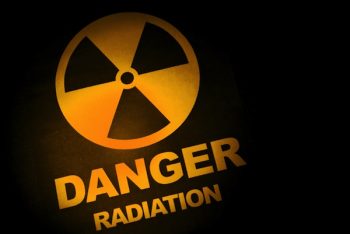

| Online: | |
| Visits: | |
| Stories: |

| Story Views | |
| Now: | |
| Last Hour: | |
| Last 24 Hours: | |
| Total: | |
Fukushima Nightmare is Far From Over — Radiation Levels Have Just Hit a Record High
March 7th, 2017
Contributing writer for Wake Up World
When the Fukushima Daiichi nuclear power plant in Japan suffered a triple meltdown in 2011, people around the world were understandably in a panic about the environmental and health impact of the crisis. Throughout the following year, consistent reports of the disaster spread across newswires, shocking the public with the extent of the damage and ongoing radioactive contamination.
Even so, the situation gradually began to fade into the background as years passed and other news took center stage. But the problem of Fukushima hasn’t gone away. In fact, it’s become much more serious. In early February of this year, extremely high radiation levels recorded within the plant have brought us face-to-face with the reality that Fukushima continues to be a radioactive nightmare that threatens our environment, ecology and health for generations to come.
A Continuing Environmental Catastrophe
On March 11, 2011, a huge tsunami slammed into Japan’s northeast coast, which left more than 20,000 people dead or missing and caused the meltdown of three reactors at the Fukushima plant. It was the worst nuclear accident since Chernobyl in 1986.
Last December, Japan’s government announced the total estimated cost of the disaster will reach 21.5 trillion yen ($190 billion) — including compensation, decommissioning and decontamination of the surrounding area, as well as storing radioactive waste. The work of dismantling the plant is slated to begin in 2021 and is expected to be take four decades to complete, in the year 2061 — half a century after the initial meltdown.
With the latest radiation reading of 530 sieverts an hour, described by experts as “unimaginable” and far higher than the previous record in 2012 of 73 sieverts an hour, the extraordinary task of decommissioning the plant, and the obstacles confronting thousands of workers, is staggering in its scope.
Recommended articles by Carolanne Wright:
- Psychiatric Industry Corruption: 6-Year-Old Boy Committed to a Psych Ward for Throwing a Temper Tantrum at School
- Renowned Harvard Psychologist Says ADHD is Largely a Fraud
- Plastic-Eating Mushroom Discovered in the Amazon Rainforest — A Solution for Our Trash Saturated World?
- Over 100 Scientific Studies Agree: Cannabis Annihilates Cancer
- Why Every Parent Should Consider Unschooling
- First U.S. City Produces More Electricity Than It Uses — With 100% Renewable Technology
- If You Care About Animals and the Earth, Here’s Why You Need to Boycott Palm Oil Immediately
- Brain Waves and Binaural Beats: A Gateway to Higher Consciousness, Enhanced Learning and Brain Function
- 85% of Tampons, Pads and Other Feminine Care Products Contaminated with Monsanto’s Cancer-Causing Glyphosate
- Latest Research on CBD Oil Offers New Hope for Healing Leaky Gut Syndrome and Autoimmune Disorders
- Scientific Breakthrough: Alzheimer’s Ultrasound Therapy Fully Restores Memory Function in Mice
-
FACEBOOK]: http://www.facebook.com/joinwakeupworld (An interactive community of over 3,500,000)
[PINTEREST]: http://pinterest.com/wakeupword/
[TWITTER]: http://twitter.com/joinwakeupworld
[YOUTUBE]: http://www.youtube.com/joinwakeupworld
[GOOGLE PLUS]: https://plus.google.com/112452105795129310867/posts
[WEBSITE]: http://wakeup-world.com



